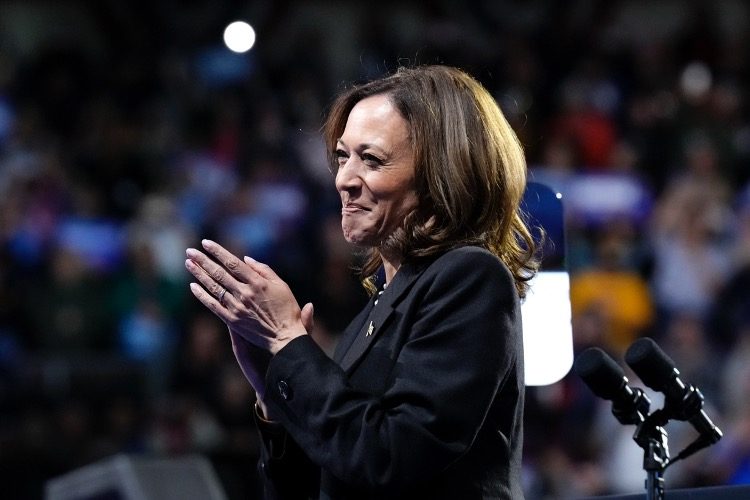
Kamala Harris’s approach to climate change and energy has undergone a significant transformation as she campaigns for the presidency. Once a vocal advocate of holding oil companies accountable for their alleged role in climate change, Harris has now shifted her focus to praising the Biden administration’s record-breaking oil production. This stark contrast has led critics to accuse her of political flip-flopping. Even CNN published a rather refreshing article on her peculiar evolution. Here’s a deeper look into Harris’ evolving positions on climate change and energy.
Eco-Warrior
During her 2019 run for the presidency, Kamala Harris positioned herself as a staunch climate advocate. At the time, she was vocal in her criticism of the fossil-fuel industry, drawing comparisons between Big Oil and Big Tobacco.
CNN uncovered more than a dozen references to “prosecuting Big Oil” in materials from Harris’ 2020 campaign, ostensibly driven by the urgency of addressing climate change.
For example, Harris said that under her administration, oil companies could face criminal charges for contributing to climate change, framing their actions as deceitful and harmful to the planet. During a town hall in South Carolina, when asked if she would support investigating companies such as Chevron and Shell “for their role in contributing to climate change,” Harris said,
“And, not unlike the tobacco companies, after years — ’cause they’d done the research — they knew the harm that their product was causing. They were making so much money that they kept that secret — same thing with these big oil companies. And they need to pay the price,” she said. “So yes is the answer.”
She even claimed that as California Attorney General, she sued Exxon Mobil.
As a presidential candidate, then-Senator Harris called for the elimination of the Senate filibuster to pass the radical Green New Deal. As quoted by Fox News at the time, Harris said,
If they [Republican Senators] fail to act, as president of the United States I am prepared to get rid of the filibuster to pass a Green New Deal.
Pledging to take an executive action, she stressed, “I will do whatever is necessary because this is about the health and safety of our country and our world.”
Harris saw the proposal that would deindustrialize America by “transitioning” away from fossil fuels as the reasonable solution to the “existential threat” of climate change.
She also released a $10-trillion climate plan for transitioning the United States to clean energy and achieving net-zero greenhouse-gas emissions by 2045.
In her push for more drastic environmental measures, Harris signed an infamous “NoKXL Pledge” to conduct a “climate test” on all future energy projects and promised to cancel controversial pipeline constructions.
Further, Harris joined other progressives in advocating for a ban on fracking and offshore drilling.
She also pushed niche environmental proposals, including banning plastic straws.
As a senator, Harris worked with Representative Alexandria Ocasio-Cortez (D-N.Y.) on a proposal requiring federal agencies to assess the impact of climate spending and policies on communities located near industrial sites. The provision was later included in the broader framework of the 2022 Inflation Reduction Act.
Pivot
Harris’s positions started to change after she joined Joe Biden’s ticket as his vice-presidential pick in 2020. During the campaign, Harris reversed her stance on several key climate issues, including fracking.
After becoming vice president, Harris’s advocacy for climate action took a back seat to the broader political goals of the Biden administration. Notably, despite her earlier promises, Harris never pushed for the type of sweeping prosecutions against oil companies that she had once championed. Instead, the administration pursued regulatory fines against companies such as Marathon Oil and BP for specific violations, such as air pollution and methane emissions, rather than the legal actions Harris had proposed, as recalled by CNN.
Harris’s rhetoric softened as well. In August 2024, after Biden announced he would not run for re-election, Harris’s campaign promptly released a statement quoted by CNN, saying she no longer supports the Green New Deal, a once-central part of her platform. She also dropped her support for banning plastic straws and no longer advocated for the radical overhaul of U.S. energy policy she had once championed.
2024: Energy Independence
As Harris campaigns for the presidency, she has largely distanced herself from her earlier climate alarmism. Instead, she has emphasized the record-breaking domestic oil production under the Biden administration.
Campaigning last month in Pennsylvania, she said, “We have had the largest increase in domestic oil production in history because of an approach that recognizes that we cannot over-rely on foreign oil.”
CNN reacted to the statement in an unusually critical manner, observing,
The US energy industry is currently producing more oil than any country in history, though energy advocacy groups have said the surge is driven by market forces, not Biden’s policies.
When asked what she would do to “fight climate change” during the September debate with former president Trump, Harris said, “increase domestic gas production to historic heights” and support domestic manufacturing.
While Harris’s campaign continues to claim she is committed to addressing climate change, her focus on oil production signals a “pragmatic” shift. Mia Ehrenberg, a Harris campaign spokesperson, stated to CNN,
As president, Kamala Harris will be pragmatic to address the threat of climate change and ensure America does not forfeit the clean energy economy and industries of the future.
She added that Harris was “proud” to cast a tie-breaking vote on “the largest climate action in American history,” referring to the Inflation Reduction Act of 2022. The act allocates significant funding toward reducing carbon emissions, promoting “clean” energy technologies, and addressing environmental justice issues. It represents a critical step toward the Biden administration’s goal of reducing U.S. greenhouse gas emissions by 50 percent by 2030.
The Climate Issue in the 2024 Election
Climate change remains a relatively low priority for voters in the 2024 election. According to a recent Gallup poll, voters place it among the least-important issues. This might explain why Harris’s campaign has largely downplayed climate policy in favor of a focus on domestic energy production and economic issues.
For those who soberly approach a climate-change agenda as a tool for advancing American deindustrialization, Harris’s about-face is unsurprising. After all, the goal has always been about increasing control over industry and human activity rather than genuinely addressing environmental concerns. Her shift away from her earlier climate rhetoric should be seen as a calculated political move to secure votes rather than a reflection of any deeply held convictions.
Related Article:


